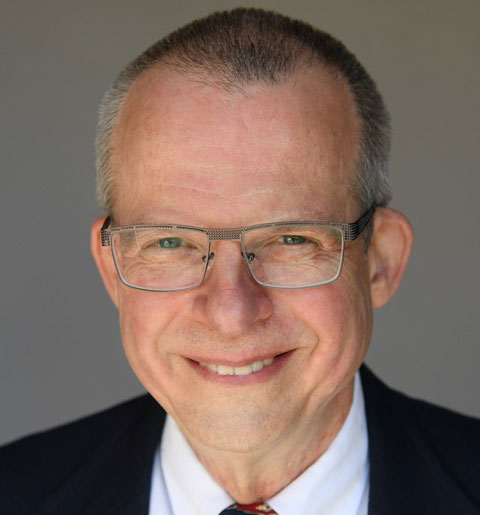Aftercare Program
While you may have put your chemical dependency behind you, and you have come to a better understanding of how your habit got started and learned ways to avoid returning to substance use, your recovery is not over. You will need to continue to practice these techniques. Seek support when you need it and remain committed to your sobriety to achieve your goal of life-long health. Professional drug rehab makes sustaining your sobriety easier and gives you many of the tools you will need. You will still require some level of support after you have completed your recovery program.
This is why a reputable addiction treatment center will place a strong emphasis on providing you with appropriate care options. These start after you leave their recovery center. This support is outlined in your rehab aftercare plan. The more robust this plan is, the stronger the likelihood that you will continue on your journey to sobriety. What your rehab aftercare will look like, however, will largely depend on the severity of your substance use and its impact on you and your loved ones.
For some, a rehab aftercare program will include ongoing support for your dual-diagnosis treatment, if you have one. This is one of the leading causes of relapse. Others may benefit from continued individual therapy or weekly support groups. They will help you stay focused on your goals and allow you to draw support from those with similar situations. If medication is a part of your recovery, you may need to visit your doctor regularly, especially in the weeks and months immediately after you leave the program. A sober living home may be the right option for some immediately after treatment. For more information about the treatment options available, contact Bayview Recovery today at 855.478.3650.

The Importance of Rehab Aftercare
There is no cure for addiction, but we can treat and manage it. In a vast number of cases, individuals do find it possible to restore their health and make better choices in the future. However, it took time for substance abuse to develop into a full-blown addiction. Therefore, it will also take time for an individual to come to terms with their dependency and fully adopt a new, healthy lifestyle.
Treatment can help individuals understand the reasons they turned to drugs and alcohol initially. It also helps you deal with those issues in healthier ways, so they no longer need to rely on substances to self-medicate. A rehab aftercare program will also give people techniques and strategies to deal with stressful situations, enabling them to avoid using substances again. Instead, individuals who’ve had rehab treatment will find it easier to find healthy activities to enjoy.
Clients can use what they learn in rehab long after they have completed the program, and most treatment modalities are intended not only to help individuals break their dependency but also to maintain their long-term emotional, psychological and physical health. These modalities include:
- Individual therapy
- Group therapy
- Cognitive-behavioral therapy (CBT)
- Trauma therapy
- Extended care
- Experiential therapy
- Art therapy
- Meditation and yoga
- Dialectical behavior therapy (DBT)
Rehab Aftercare Program for Dual Diagnosis Clients
When a client has a pre-existing mental illness along with a substance abuse problem, this is a dual diagnosis. Mental illness and substance dependency closely resemble one another from a clinical standpoint. And after an individual has completed his or her rehab program, it is often necessary to monitor both illnesses closely afterward. This is because ongoing mental health problems could lead to a relapse and additional, serious health risks.
Most often, this monitoring is accomplished through continuing individual therapy. This may also be necessary if medications are prescribed, which help manage any mental health symptoms. Medications may need periodic adjustment to ensure these issues remain under control and don’t threaten an individual’s sobriety, so regular doctor visits will also play a part in a rehab aftercare program.
Sober Living Options Give You More Time To Heal
A sober living home can give some clients the additional time they need to continue their recovery before returning home to their jobs, family, and loved ones. Perhaps you need more time to practice the techniques you’ve learned. You or your family need more time to rebuild your relationships once treatment is complete. If your home poses certain risks to your recovery, a sober living environment can give you time to make alternative arrangements or to feel secure enough to re-engage. Along with outpatient treatment, a sober living home can be a strong determinant of long-term success.
Bayview Recovery’s Approach to a Rehab Aftercare Program
Bayview Recovery is one of the leading drug rehab and treatment facilities for adult clients in the Pacific Northwest. We offer individual and group therapy, evidence-based treatments, cognitive-behavioral and dialectical behavioral treatments. We also offer holistic treatments for those who are beginning addiction recovery and for their loved ones. Our clients leave our program with a detailed and vetted rehab aftercare program which ensures they continue any necessary treatments and get the support they need to have the highest chances of success.
Whatever stage of the journey you are in, Bayview Recovery can help. Call 855.478.3650 today.
Dave Cundiff, MD, MPH is an experienced leader in the field of Substance Use Disorder treatment. He works with patients suffering from Substance Use Disorder to evaluate their medication needs and prescribe treatments accordingly. In addition, he regularly participates in all-staff debriefing sessions involving peers, nurses, and other prescribers. He also reviews and advises on policies, procedures, and techniques for treating substance use disorder.




